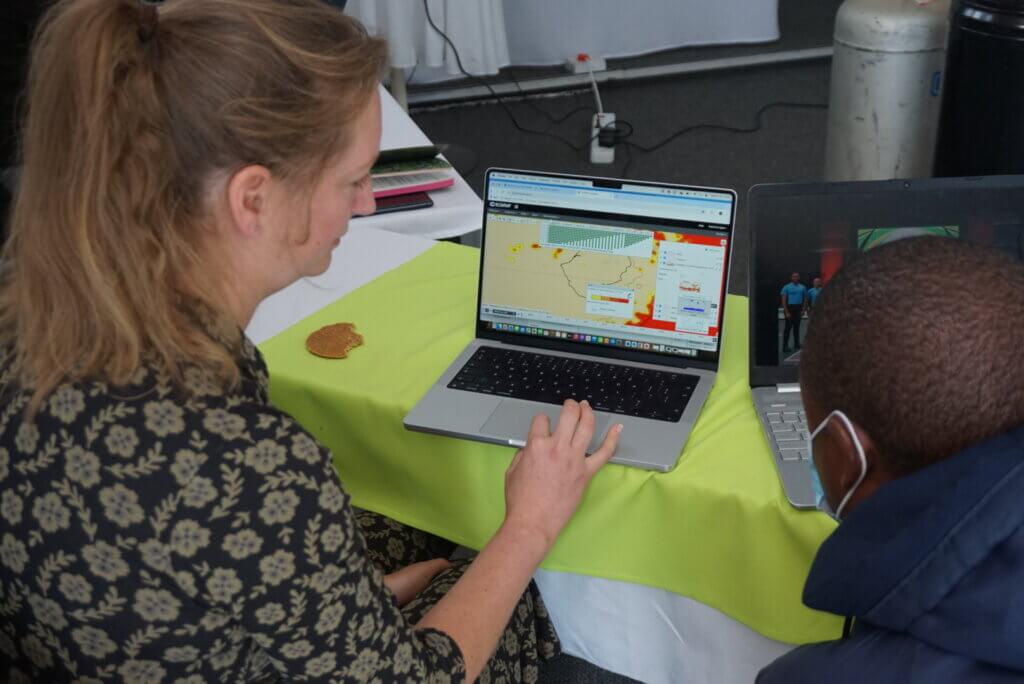In Lesotho, climate change is no longer a distant threat: it’s a daily reality. Prolonged droughts are reshaping the country’s landscapes and putting immense pressure on communities that rely on rain-fed agriculture and small-scale livestock farming. For many, the difference between resilience and crisis lies in the ability to act early, which requires more than just forecasts. It requires climate services that are understandable, actionable, and rooted in local realities. That’s where I-CISK (Innovating Climate services through Integrating Scientific and local Knowledge) comes in.
Co-creating climate services that work
Funded by the European Union’s Horizon 2020 research and innovation programme, I-CISK is a research initiative which aims to transform the way climate information is understood and applied by developing next-generation climate services. Spearheaded by the IHE Delft Institute for Water Education, the consortium brings together scientists, organizations and local communities to co-create climate services that help people make better decisions in the face of climate risks across a variety of domains: from tourism to agriculture and humanitarian work. These services go beyond weather forecasts: they link local knowledge and needs with scientific data to support real-world solutions.
Seven Living Labs across Europe and Africa form the backbone of I-CISK’s action-research approach. They co-create climate services with end-users in climate-vulnerable regions, ensuring solutions are tailored to local needs. Lesotho is the only Living Lab outside Europe. In the Southern Lowlands and Senqu Valley, the Lesotho Living Lab brings together local stakeholders to co-develop solutions that help communities adapt to drought and cold waves.

Supporting anticipatory action in Lesotho
The Netherlands Red Cross’ data and digital team, 510, supports National Societies in strengthening their Acción Anticipatoria work. In Lesotho, the Lesotho Red Cross Society led the review of their existing Early Action Protocol (EAP) for cold waves, with technical support from 510 and the European Centre for Medium-Range Weather Forecasts (ECMWF), ensuring it reflects both local realities and scientific insights. To prepare for drought, the National Society and 510 co-developed an instance of the Impact-Based Forecasting (IBF) Portal: a digital tool that supports timely, data-informed decisions when forecasted hazards threaten communities.
“Anticipatory Action provides important resources that enable communities to act early. Using the IBF Portal for drought, we implement readiness activities based on information about the possibility of triggers being reached, which helps us to prepare for hazards in advance.”
Sebongile Hlubi, Anticipatory Action Coordinator at the Lesotho Red Cross Society
A key feature of Lesotho’s IBF Portal is the ability for users to manually trigger preparedness activities. This is crucial in a context where much of the climate data comes from local providers like the Lesotho Meteorological Services and cannot be automatically integrated. By enabling manual activation, the portal ensures that early action can be taken when it matters most.
“Data and digital solutions can make climate adaptation more timely, accurate, and impactful. We support the Lesotho Red Cross Society to mitigate the impact of drought events on vulnerable communities, by co-creating a tool that assists the National Society with their decision-making in preparation for these events.”
Daniele Castellana, Technical Project Coordinator at the Netherlands Red Cross
Building lasting connections
One of the most meaningful outcomes of I-CISK has been the strengthened collaboration between the Lesotho Red Cross Society, the Lesotho Meteorological Services, and other national stakeholders. Workshops and joint decision-making have built a platform for lasting cooperation beyond the project. This is the essence of co-creation: not just building tools, but building bridges through shared understanding. By combining human-centred design with local knowledge and scientific expertise, the Lesotho Living Lab has developed a climate service that is both relevant and operational.
What’s next?
To share these insights more broadly, I-CISK partners developed a Massive Open Online Course (MOOC) on co-creating climate services, designed to share lessons learned and inspire similar approaches across climate-affected sectors. This collaboration between sector-specific organisations and academic institutions ensures that climate services are both scientifically robust and locally actionable.
Putting people and their knowledge at the centre enables effective, sustainable adaptation. At 510, we’re proud to have contributed to this journey. Working with the Lesotho Red Cross Society on their anticipatory action efforts, we ensure that vulnerable communities in Lesotho are better prepared for the next drought: not just with data, but with the tools and partnerships to act on it.
This project has received funding from the European Union’s Horizon 2020 research and innovation programme under grant agreement No 101037293.
DESCARGO DE RESPONSABILIDAD: Tenga en cuenta que las versiones en árabe, francés y español de este artículo se han generado automáticamente mediante Inteligencia Artificial. No podemos garantizar la total exactitud de estas versiones.
Queremos conocer su opinión.
Are you interested in pursuing similar solutions within your National Society’s context? Please reach out to:
Coordinador de Servicios, Acción Anticipada: Aklilu Teklesadik ateklesadik@redcross.nl
Product Manager, IBF Portal: Blaise Selvan bselvan@redcross.nl